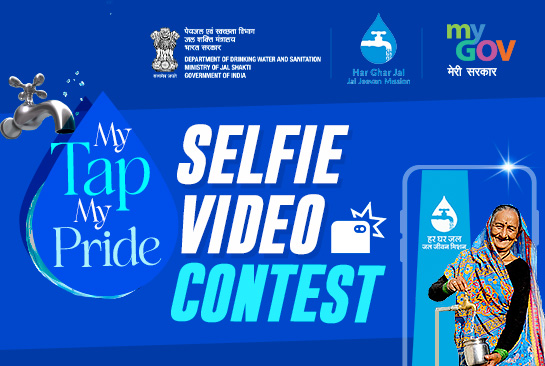ਭਾਰਤ, ਦੁਨੀਆਂ ਵਿੱਚ ਬੱਚਿਆਂ ਅਤੇ ਔਰਤਾਂ ਦੀ ਸਭ ਤੋਂ ਵੱਡੀ ਆਬਾਦੀ ਵਾਲੇ ਦੇਸ਼ਾਂ ਵਿੱਚੋਂ ਇੱਕ ਹੈ, ਮਹਿਲਾ ਅਤੇ ਬਾਲ ਵਿਕਾਸ ਮੰਤਰਾਲਾ ਹੋਰ ਸਬੰਧਤ ਮੰਤਰਾਲਿਆਂ ਅਤੇ ਵਿਭਾਗਾਂ ਦੇ ਨਾਲ ਮਿਲ ਕੇ ਇਸ ਆਬਾਦੀ ਦੇ ਪੋਸ਼ਣ ਅਤੇ ਸਿਹਤ ਸਥਿਤੀ ਨੂੰ ਉੱਚਾ ਚੁੱਕਣ ਲਈ ਕੰਮ ਕਰ ਰਿਹਾ ਹੈ। ਭਾਰਤ ਵਿੱਚ ਬਹੁਤ ਸਾਰੇ ਭਾਰਤੀ ਭੋਜਨ ਰਵਾਇਤੀ ਤੌਰ 'ਤੇ ਬਹੁਤ ਸਾਰੇ ਭੋਜਨਾਂ ਨਾਲ ਭਰਪੂਰ ਹੁੰਦੇ ਹਨ ਜਿਨ੍ਹਾਂ ਵਿੱਚ ਅਨਾਜ (ਜਿਵੇਂ ਕਿ ਚੌਲ, ਕਣਕ, ਬਾਜਰਾ, ਮੱਕੀ), ਦਾਲਾਂ (ਜਿਵੇਂ ਕਿ ਮੂੰਗੀ, ਛੋਲੇ, ਅਤੇ ਰਾਜਮਾ), ਮੌਸਮੀ ਫਲ, ਹਰੀਆਂ ਪੱਤੇਦਾਰ ਸਬਜ਼ੀਆਂ, ਜੜ੍ਹਾਂ ਅਤੇ ਕੰਦ ਸ਼ਾਮਲ ਹਨ। ਇਸ ਤੋਂ ਇਲਾਵਾ, ਡੇਅਰੀ ਉਤਪਾਦ, ਮਸਾਲੇ, ਗਿਰੀਦਾਰ, ਬੀਜ ਅਤੇ ਤੇਲ ਪੋਸ਼ਣ ਅਤੇ ਸੁਆਦ ਦੋਵਾਂ ਵਿੱਚ ਯੋਗਦਾਨ ਪਾਉਂਦੇ ਹਨ। ਇਹ ਵਿਭਿੰਨਤਾ ਨਾ ਸਿਰਫ਼ ਸਵਾਦ ਨੂੰ ਸੰਤੁਸ਼ਟ ਕਰਦੀ ਹੈ ਬਲਕਿ ਚੰਗੀ ਸਿਹਤ ਲਈ ਜ਼ਰੂਰੀ ਮੈਕਰੋ- ਅਤੇ ਸੂਖਮ ਪੌਸ਼ਟਿਕ ਤੱਤਾਂ ਦੇ ਵਿਸ਼ਾਲ ਸਪੈਕਟ੍ਰਮ ਨੂੰ ਵੀ ਯਕੀਨੀ ਬਣਾਉਂਦੀ ਹੈ। ਰਵਾਇਤੀ ਭਾਰਤੀ ਥਾਲੀ (ਥਾਲੀ) ਖੁਰਾਕ ਸੰਤੁਲਨ ਅਤੇ ਵਿਭਿੰਨਤਾ ਦੀ ਇੱਕ ਸੰਪੂਰਨ ਉਦਾਹਰਣ ਹੈ ਜਿਸ ਵਿੱਚ ਆਮ ਤੌਰ 'ਤੇ ਅਨਾਜ, ਦਾਲ, ਸਬਜ਼ੀਆਂ, ਦਹੀਂ, ਅਤੇ ਕਈ ਵਾਰ ਮਾਸ ਜਾਂ ਮੱਛੀ ਸ਼ਾਮਲ ਹੁੰਦੀ ਹੈ, ਜੋ ਖੇਤਰੀ ਅਤੇ ਸੱਭਿਆਚਾਰਕ ਤਰਜੀਹਾਂ 'ਤੇ ਨਿਰਭਰ ਕਰਦੀ ਹੈ। ਸ਼ਾਕਾਹਾਰੀ ਖੁਰਾਕ ਦੇ ਅੰਦਰ ਵੀ, ਭਾਰਤ ਭੋਜਨ ਸੰਜੋਗਾਂ, ਖਾਣਾ ਪਕਾਉਣ ਦੇ ਤਰੀਕਿਆਂ ਅਤੇ ਮੌਸਮੀ ਅਨੁਕੂਲਤਾਵਾਂ ਵਿੱਚ ਸ਼ਾਨਦਾਰ ਭਿੰਨਤਾ ਪ੍ਰਦਰਸ਼ਿਤ ਕਰਦਾ ਹੈ।
ਭਾਰਤ ਦੀ ਖੁਰਾਕ ਵਿਭਿੰਨਤਾ ਨੂੰ ਉਤਸ਼ਾਹਿਤ ਕਰਨਾ ਅਤੇ ਸੁਰੱਖਿਅਤ ਰੱਖਣਾ ਪੋਸ਼ਣ ਸੁਰੱਖਿਆ, ਵਾਤਾਵਰਣ ਸਥਿਰਤਾ ਅਤੇ ਸੱਭਿਆਚਾਰਕ ਨਿਰੰਤਰਤਾ ਲਈ ਬਹੁਤ ਮਹੱਤਵਪੂਰਨ ਹੈ। ਬਾਜਰੇ ਦੀ ਖਪਤ ਨੂੰ ਮੁੜ ਸੁਰਜੀਤ ਕਰਨਾ, ਰਸੋਈ ਦੇ ਬਾਗਾਂ ਨੂੰ ਉਤਸ਼ਾਹਿਤ ਕਰਨਾ, ਅਤੇ ਸਰਕਾਰੀ ਪੋਸ਼ਣ ਯੋਜਨਾਵਾਂ (ਜਿਵੇਂ ਕਿ ਪੋਸ਼ਣ ਅਭਿਆਨ) ਵਿੱਚ ਸਥਾਨਕ ਭੋਜਨ ਨੂੰ ਸ਼ਾਮਲ ਕਰਨਾ ਵਰਗੇ ਯਤਨ ਇੱਕ ਸਿਹਤਮੰਦ ਭਵਿੱਖ ਬਣਾਉਣ ਲਈ ਮਹੱਤਵਪੂਰਨ ਰਹੇ ਹਨ। ਸਾਡੀ ਰਵਾਇਤੀ ਭੋਜਨ ਬੁੱਧੀ ਨੂੰ ਅਪਣਾ ਕੇ ਅਤੇ ਸਾਰਿਆਂ ਲਈ ਵਿਭਿੰਨ ਖੁਰਾਕ ਤੱਕ ਪਹੁੰਚ ਯਕੀਨੀ ਬਣਾ ਕੇ, ਭਾਰਤ ਕੁਪੋਸ਼ਣ ਨੂੰ ਖਤਮ ਕਰਨ ਅਤੇ ਆਪਣੇ ਟਿਕਾਊ ਵਿਕਾਸ ਟੀਚਿਆਂ ਨੂੰ ਪ੍ਰਾਪਤ ਕਰਨ ਵੱਲ ਇੱਕ ਮਹੱਤਵਪੂਰਨ ਕਦਮ ਚੁੱਕ ਸਕਦਾ ਹੈ।
ਇੱਕ ਅਜਿਹਾ ਭਵਿੱਖ ਬਣਾਉਣ ਲਈ ਜਿੱਥੇ ਹਰ ਬੱਚੇ ਅਤੇ ਔਰਤ ਨੂੰ ਢੁਕਵਾਂ ਪੋਸ਼ਣ ਮਿਲੇ ਅਤੇ ਉਹਨਾਂ ਨੂੰ ਵਧਣ-ਫੁੱਲਣ ਦਾ ਮੌਕਾ ਮਿਲੇ, ਜਾਗਰੂਕਤਾ, ਸਿੱਖਿਆ ਅਤੇ ਵਿਵਹਾਰਕ ਤਬਦੀਲੀ ਲਈ ਨਵੀਨਤਾਕਾਰੀ ਅਤੇ ਟਿਕਾਊ ਪਹੁੰਚ ਜ਼ਰੂਰੀ ਹਨ। ਅਜਿਹਾ ਹੀ ਇੱਕ ਤਰੀਕਾ ਹੈ POSHAN ਅਜਾਇਬ ਘਰ ਦੀ ਸਥਾਪਨਾ, ਇੱਕ ਸਮਰਪਿਤ ਜਗ੍ਹਾ ਜੋ ਜਨਤਾ ਨੂੰ ਪੋਸ਼ਣ ਅਤੇ ਸਿਹਤ ਦੀ ਮਹੱਤਤਾ ਬਾਰੇ ਸਿੱਖਿਆ, ਪ੍ਰੇਰਿਤ ਅਤੇ ਸ਼ਾਮਲ ਕਰਦੀ ਹੈ। ਅਜਾਇਬ ਘਰ ਭਾਰਤ ਦੇ ਪੋਸ਼ਣ ਏਜੰਡੇ ਦਾ ਸਮਰਥਨ ਕਰਨ ਅਤੇ POSHAN ਅਭਿਆਨ ਦੇ ਸੰਦੇਸ਼ਾਂ ਨੂੰ ਮਜ਼ਬੂਤ ਕਰਨ ਲਈ ਇੱਕ ਗਤੀਸ਼ੀਲ, ਸੰਵਾਂਦਾਤਮਕ ਪਲੇਟਫਾਰਮ ਵਜੋਂ ਕੰਮ ਕਰ ਸਕਦਾ ਹੈ।
POSHAN ਅਜਾਇਬ ਘਰ ਬਣਾਉਣ ਦਾ ਦ੍ਰਿਸ਼ਟੀਕੋਣ ਇੱਕ ਨਵੀਨਤਾਕਾਰੀ, ਸੰਵਾਂਦਾਤਮਕ ਅਤੇ ਸਮਾਵੇਸ਼ੀ ਰਾਸ਼ਟਰੀ ਪਲੇਟਫਾਰਮ ਸਥਾਪਤ ਕਰਨਾ ਹੈ ਜੋ ਸਾਰੇ ਉਮਰ ਸਮੂਹਾਂ, ਖਾਸ ਕਰਕੇ ਬੱਚਿਆਂ, ਔਰਤਾਂ ਅਤੇ ਕਿਸ਼ੋਰਾਂ ਲਈ ਪੋਸ਼ਣ, ਸਿਹਤ ਅਤੇ ਤੰਦਰੁਸਤੀ ਬਾਰੇ ਜਾਗਰੂਕਤਾ, ਸਿੱਖਿਆ ਅਤੇ ਕਾਰਵਾਈ ਨੂੰ ਉਤਸ਼ਾਹਿਤ ਕਰਦਾ ਹੈ। ਇਹ ਅਜਾਇਬ ਘਰ ਗਿਆਨ, ਪ੍ਰੇਰਨਾ ਅਤੇ ਜਨਤਕ ਸ਼ਮੂਲੀਅਤ ਦੇ ਕੇਂਦਰ ਵਜੋਂ ਕੰਮ ਕਰੇਗਾ, ਜੋ ਕਿ ਭਾਰਤ ਸਰਕਾਰ ਦੇ ਸਮੁੱਚੇ ਸਮਾਜ ਦੇ ਦ੍ਰਿਸ਼ਟੀਕੋਣ ਰਾਹੀਂ ਕੁਪੋਸ਼ਣ ਨੂੰ ਖਤਮ ਕਰਨ ਦੇ ਮਿਸ਼ਨ ਨਾਲ ਮੇਲ ਖਾਂਦਾ ਹੈ।
ਇਹ ਕਲਪਨਾ ਕੀਤੀ ਗਈ ਹੈ ਕਿ ਪੋਸ਼ਨ ਅਜਾਇਬ ਘਰ ਦਾ ਉਦੇਸ਼ ਹੋਵੇਗਾ:
POSHAN ਅਜਾਇਬ ਘਰ ਨਾ ਸਿਰਫ਼ ਜਾਣਕਾਰੀ ਦਾ ਭੰਡਾਰ ਹੋਵੇਗਾ ਸਗੋਂ ਇੱਕ ਜੀਵਤ, ਵਿਕਸਤ ਹੋ ਰਹੀ ਜਗ੍ਹਾ ਹੋਵੇਗੀ ਜਿੱਥੇ ਵਿਗਿਆਨ, ਸੱਭਿਆਚਾਰ ਅਤੇ ਰਚਨਾਤਮਕਤਾ ਇੱਕ ਸਰਕਾਰੀ ਪ੍ਰੋਗਰਾਮ ਤੋਂ ਪੋਸ਼ਣ ਨੂੰ ਇੱਕ ਜਨਤਕ ਲਹਿਰ ਵਿੱਚ ਬਦਲਣਗੇ।
ਕੁੱਝ ਮੁੱਖ ਥੀਮੈਟਿਕ ਖੇਤਰ ਹਨ ਜਿੰਨ੍ਹਾਂ ਵਿੱਚ ਗੈਲਰੀ ਨੂੰ ਵੰਡਿਆ ਜਾਵੇਗਾ
ਭੋਜਨ ਸਮਾਂ-ਰੇਖਾ ਖੇਤਰ - ਭਾਰਤੀ ਖੁਰਾਕ ਦਾ ਇਤਿਹਾਸ
ਪੋਸ਼ਣ ਦਾ ਵਿਗਿਆਨ
ਰਵਾਇਤੀ ਭੋਜਨ ਗੈਲਰੀ
ਨੀਤੀ, ਪ੍ਰੋਗਰਾਮ ਅਤੇ ਪਹਿਲਕਦਮੀਆਂ
ਪੋਸ਼ਣ ਪ੍ਰਤੀ ਜੀਵਨ ਚੱਕਰ ਦ੍ਰਿਸ਼ਟੀਕੋਣ
ਖੋਜ, ਡਾਟਾ ਅਤੇ ਦਸਤਾਵੇਜ਼
ਸੰਵਾਂਦਾਤਮਕ ਸਿਖਲਾਈ ਜ਼ੋਨ
ਆਯੁਰਵੇਦ ਅਤੇ ਭਾਰਤੀ ਭੋਜਨ
ਭੋਜਨ ਅਤੇ ਪੋਸ਼ਣ ਵਿੱਚ ਤਕਨਾਲੋਜੀ ਦਖਲਅੰਦਾਜ਼ੀ
ਬੱਚਿਆਂ ਦਾ ਕੋਨਾ
ਇਸ ਮੁਕਾਬਲੇ ਦਾ ਉਦੇਸ਼ ਪੋਸ਼ਣ ਅਜਾਇਬ ਘਰ ਦੀ ਸਥਾਪਨਾ ਲਈ ਮੁੱਖ ਥੀਮੈਟਿਕ ਖੇਤਰਾਂ ਬਾਰੇ ਲੋਕਾਂ ਤੋਂ ਵਿਚਾਰ ਮੰਗਣਾ ਹੈ। ਪੋਸ਼ਣ ਅਜਾਇਬ ਘਰ ਵਿੱਚ ਨਵੀਨਤਾਕਾਰੀ ਵਿਚਾਰ ਸੱਦਾ ਦਿੱਤੇ ਜਾਂਦੇ ਹਨ ਜੋ ਨਾ ਸਿਰਫ਼ ਜਾਣਕਾਰੀ ਪ੍ਰਦਾਨ ਕਰਨ ਲਈ ਸਥਾਪਿਤ ਕੀਤਾ ਜਾਵੇਗਾ ਬਲਕਿ ਪੋਸ਼ਣ ਸੰਬੰਧੀ ਮੁੱਦਿਆਂ 'ਤੇ ਲੋਕਾਂ ਨਾਲ ਜੁੜਨ ਲਈ ਵੀ ਤਿਆਰ ਕੀਤਾ ਜਾਵੇਗਾ।
ਅੱਪਲੋਡ ਫਾਰਮੈਟ: PDF
ਜਮ੍ਹਾਂ ਕੀਤੀਆਂ ਐਂਟਰੀਆਂ ਦਾ ਮੁਲਾਂਕਣ ਇਹਨਾਂ ਮਾਪਦੰਡਾਂ ਦੇ ਆਧਾਰ 'ਤੇ ਕੀਤਾ ਜਾਵੇਗਾ:
ਸੰਸਥਾ ਸੰਸਥਾਨ ਦੁਆਰਾ ਗਠਿਤ ਕਮੇਟੀ ਦੁਆਰਾ ਮੁਲਾਂਕਣ ਦੇ ਆਧਾਰ 'ਤੇ ਹਰੇਕ ਸ਼੍ਰੇਣੀ ਦੇ ਤਹਿਤ 3 ਸਭ ਤੋਂ ਵਧੀਆ ਐਂਟਰੀਆਂ ਦੀ ਚੋਣ ਕਰੇਗੀ। ਹਰੇਕ ਮੁੱਖ ਥੀਮੈਟਿਕ ਖੇਤਰ ਲਈ ਪਹਿਲੀ, ਦੂਜੀ ਅਤੇ ਤੀਜੀ ਸਭ ਤੋਂ ਵਧੀਆ ਐਂਟਰੀਆਂ ਨੂੰ ਪ੍ਰਸ਼ੰਸਾ ਪੱਤਰ ਪ੍ਰਦਾਨ ਕੀਤਾ ਜਾਵੇਗਾ, ਜਿਸ 'ਤੇ ਸਾਵਿਤਰੀਬਾਈ ਫੂਲੇ ਰਾਸ਼ਟਰੀ ਮਹਿਲਾ ਅਤੇ ਬਾਲ ਵਿਕਾਸ ਸੰਸਥਾਨ ਦੇ ਸਮਰੱਥ ਅਧਿਕਾਰੀ ਦੁਆਰਾ ਦਸਤਖਤ ਕੀਤੇ ਜਾਣਗੇ।
ਡਾ. ਸੰਘਮਿੱਤਰਾ ਬੈਰਕ, ਸੰਯੁਕਤ ਨਿਰਦੇਸ਼ਕ (CP), ਸਾਵਿਤਰੀਬਾਈ ਫੂਲੇ ਰਾਸ਼ਟਰੀ ਮਹਿਲਾ ਅਤੇ ਬਾਲ ਵਿਕਾਸ ਸੰਸਥਾਨ, 5 ਸਿਰੀ ਸੰਸਥਾਗਤ ਖੇਤਰ, ਹੌਜ਼ ਖਾਸ, ਨਵੀਂ ਦਿੱਲੀ 110016।
ਪੇਂਡੂ ਖੇਤਰਾਂ ਵਿੱਚ ਜੀਵਨ ਦੀ ਗੁਣਵੱਤਾ ਨੂੰ ਹੋਰ ਬਿਹਤਰ ਬਣਾਉਣ ਅਤੇ ਰਹਿਣ-ਸਹਿਣ ਦੀ ਸੌਖ ਵਧਾਉਣ ਲਈ, ਮਾਣਯੋਗ ਪ੍ਰਧਾਨ ਮੰਤਰੀ ਨੇ 15 ਅਗਸਤ 2019 ਨੂੰ ਜਲ ਜੀਵਨ ਮਿਸ਼ਨ (JJM) ਹਰ ਘਰ ਜਲ ਦਾ ਐਲਾਨ ਕੀਤਾ। ਇਸ ਮਿਸ਼ਨ ਦਾ ਉਦੇਸ਼ ਦੇਸ਼ ਦੇ ਹਰ ਪੇਂਡੂ ਪਰਿਵਾਰ ਨੂੰ ਟੂਟੀ ਦੇ ਪਾਣੀ ਦੀ ਸਪਲਾਈ ਯਕੀਨੀ ਬਣਾਉਣਾ ਹੈ।

BioE3 ਚਣੌਤੀ ਲਈ D.E.S.I.G.N. BioE3 (ਇਕਨੌਮੀ, ਵਾਤਾਵਰਣ ਅਤੇ ਰੁਜ਼ਗਾਰ ਲਈ ਬਾਇਓਟੈਕਨਾਲੋਜੀ) ਨੀਤੀ ਢਾਂਚੇ ਦੇ ਤਹਿਤ ਇੱਕ ਪਹਿਲਕਦਮੀ ਹੈ, ਜਿਸਦਾ ਉਦੇਸ਼ ਦੇਸ਼ ਦੇ ਨੌਜਵਾਨ ਵਿਦਿਆਰਥੀਆਂ ਅਤੇ ਖੋਜਕਰਤਾਵਾਂ ਦੁਆਰਾ ਚਲਾਏ ਜਾਂਦੇ ਨਵੀਨਤਾਕਾਰੀ, ਟਿਕਾਊ ਅਤੇ ਸਕੇਲੇਬਲ ਬਾਇਓਟੈਕਨਾਲੌਜੀ ਹੱਲਾਂ ਨੂੰ ਪ੍ਰੇਰਿਤ ਕਰਨਾ ਹੈ, ਜਿਸਦਾ ਮੁੱਖ ਵਿਸ਼ਾ 'ਨੌਜਵਾਨਾਂ ਨੂੰ ਆਪਣੇ ਸਮੇਂ ਦੇ ਮਹੱਤਵਪੂਰਨ ਮੁੱਦਿਆਂ ਨੂੰ ਹੱਲ ਕਰਨ ਲਈ ਸਸ਼ਕਤ ਬਣਾਉਣਾ' ਹੈ।

ਵਿਗਿਆਨਕ ਅਤੇ ਉਦਯੋਗਿਕ ਖੋਜ ਪ੍ਰੀਸ਼ਦ (CSIR), ਜੋ ਵਿਭਿੰਨ S&T ਖੇਤਰਾਂ ਵਿੱਚ ਆਪਣੇ ਅਤਿ ਆਧੁਨਿਕ ਖੋਜ ਅਤੇ ਵਿਕਾਸ ਗਿਆਨ ਅਧਾਰ ਲਈ ਜਾਣੀ ਜਾਂਦੀ ਹੈ, ਇੱਕ ਸਮਕਾਲੀ ਖੋਜ ਅਤੇ ਵਿਕਾਸ ਸੰਗਠਨ ਹੈ।
